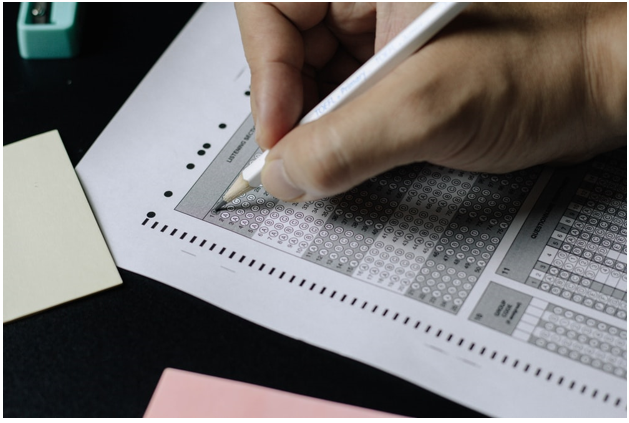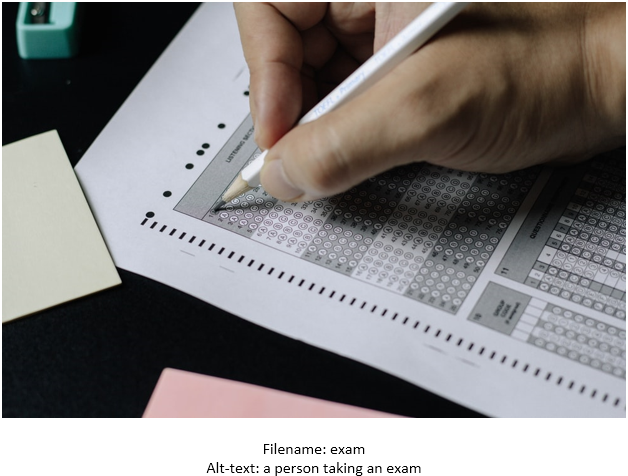
Meta: Exam anxiety can significantly affect how you do on your exams. Here are some tips to lower your stress before exams.
Exam stress is a common factor that can affect your results. Many students who are good learners don’t know how to handle the pressure during exams. As essential as it is to learn the content of an exam, it’s equally crucial to remain calm and composed when taking the exam.

If you're someone who freaks out when exams are around the corner, this blog post is for you. In this post, we'll discuss some tried and tested methods that help you prepare for high-pressure exams.
Importance of improving your physical health
Physical activity is a scientifically proven method to fight stress in the long run.
When you hit the workout daily, it helps manage stress hormones such as cortisol and adrenaline while boosting endorphins that act as natural painkillers and lift your spirits.
When you’re physically fit, you’ll be able to handle stress better generally in life. Here are a few things you can do to stay active and reduce stress.

Stretching
Stretching helps you become more flexible and release muscle tension. Stretching for 10-15 minutes daily also improves your blood flow, leading to reduced blood pressure.
Take a short walk daily
Taking a walk can improve your mood and freshen your mind. Going out for a walk in a park daily will help you connect with nature and provide you time to clear your head when you’re cramming for an exam.

Try to exercise regularly
Research shows that high-intensity workouts affect your mental and physical well-being positively. However, it doesn’t mean that you become a full-fledge athlete; here are some tips to get you started:
- Involve in light exercise. This may include biking, running, and calisthenics 4 to 6 times.
- Set achievable daily goals. The key to a good workout routine is consistency. That's why it's better to be consistent instead of being over-ambitious. Try to engage in some physical activity daily and increase the intensity as your body adapts to it.
- Do what makes you feel better. While some people like hitting the gym, others enjoy an early morning run. Pick a workout that’s fun for you so that you stick to it and don’t burn out.
Sleep management
Sleep management is closely linked to your time management. Factors like the amount of sleep you get and the time you wake up shape your daily routine and greatly affect your ability to manage an efficient daily schedule.

Moreover, stress and sleep have a close two-way relationship. When you're stressed, it's very difficult to fall asleep on time which can lead to sleeping disorders. Similarly, if you don't get good sleep, your stress levels might shoot.
Here are some tips for managing your sleep better:
- Fix a sleeping and waking time. When you go to bed and get out of your bed at the same time every day, you set the biological clock that helps you optimize your sleep cycles.
- Avoid sleeping late on weekends. Some of us might think it’s okay to sleep in on the weekend. However, sleeping in can disturb your internal clock and disrupt your sleeping habits. If you had a long night, just try to take a short nap the next day instead of sleeping in.
- Avoid screens before bed. Using a smartphone or laptop affects your sleep badly. The blue light from these screens hurts your eyes and disrupt your sleeping patterns.
Organizational tips for high-pressure exams

Clean your study area
We're all aware of how decluttering can affect our productivity. When your study desk is decluttered, it’s hard to focus on learning. Not only you’re more likely to get distracted by random objects that you suddenly find fascinating, but you’re also likely to feel frustrated.
Here are some tips to organize your desk better.
- Get rid of old, unnecessary stuff. Clean all the stuff lying around, including photos, staplers, snacks, etc. Clean them out of your site and store them in a drawer.
- Organize your desk every day. It’s easier to clean and declutter at the end of a long day. Take out 5 minutes to put everything back in its place before you leave your work desk and go to sleep.
- Use organizers. Nowadays, you can find a lot of cool organizers that help you make your desk look neat and well-organized. Invest a few bucks in a bunch of organizers.
Time management is key
According to a study, students who learned time management skills and applied them during their studies and exam practice show less exam anxiety as compared to those who didn’t employ time management techniques.
Managing your time well ensures that you’re getting enough rest and sleep every day. This helps you feel more focused during and before exams. Moreover, when you manage your time and study schedules, you’re less likely to freak out a few days before exams and start cramming all the study material.
Here are some useful tips on time management:
- Take a short break after every 50 minutes. For many students, studying in chunks of 50 minutes block work better. After one session, you can take a 10-minute break, have a snack or a little stretch and come back to work. This gives your brain enough time to refresh and start the next study session with new energy.
- Make a monthly plan. Plan your monthly learning goals. Once you've set your monthly goals, you can break them down into weeks, days, and hours eventually. This will give you a sense of control over your preparations.
If you’re worried about exam preparation, Bayise can help you. It is one of the best online tutoring platforms that can help you prepare for a variety of exams, including USMLE and TOEFL. In addition, we offer assignment help and online tuition for students struggling in their academic life.
The online platform also offers several IT certification training and online copywriting services. You can also sign up as a tutor and earn money from home.
Sign up today to benefit from our services.









 facebook
facebook
 Google
Google










